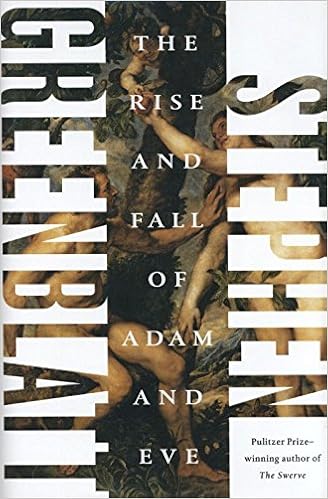 Here’s the take of a Christian scholar, Hans Madueme, review of a book, The Rise and Fall of Adam and Eve , by a secular Shakespeare scholar, Stephen Greenblatt:
Here’s the take of a Christian scholar, Hans Madueme, review of a book, The Rise and Fall of Adam and Eve , by a secular Shakespeare scholar, Stephen Greenblatt:
Greenblatt tells the Adam and Eve story from a non-Christian, outsider’s perspective. On the one hand, he treats many of the historical actors fairly and avoids anachronism or trivializing their unique concerns. I commend him for that. On the other hand, the book is far less helpful at conveying the deep theological significance of our first parents. Many readers will therefore likely disagree with key elements of Greenblatt’s narrative. Theological insights are scattered throughout, but they’re cut off from their deeper, organic connections to Adam and Eve.
This problem is heightened by Greenblatt’s gauzy view of Scripture. He never really questions the standard historical-critical readings of Genesis, almost all of which are debatable and often highly speculative (cf. Kenneth Kitchen, On the Reliability of the Old Testament). Taking his cues from that scholarship, Greenblatt thinks Genesis 2–3 is a creative reworking of the origin story in the Gilgamesh epic (see esp. 62–63). More significantly, the book gives the overwhelming impression that the Bible is a fallible mishmash of human writings. There’s no inkling of anything divine or supernatural about these texts, a bias that severely handicaps Greenblatt’s ability to deliver the goods…
This reticence to take the biblical narrative realistically may explain why his final chapter rushes too quickly to tie up his story. Greenblatt oversimplifies the significance of Darwin for the Christian understanding of human origins.Hans Madueme, “A Secular Shakespeare Scholar on Adam and Eve” at Gospel Coalition
Follow UD News at Twitter!
See also: Adam and Eve reappear in a recent study Story originated last May. Seems to have slept a bit. The recent Daily Mail retread of this story offers a valuable take-home point: Much on offer from science today is very provisional knowledge at best and flimflam at worst, bolstered by research on what’s wrong with the people who don’t trust it.